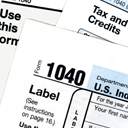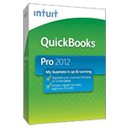The IRS allows business owners and self-employed deduct cost of doing business and those expenses have to be well documented in case of an audit or a request for clarification. In any case, having business related expenses leads to deducting them from your revenues to lower your taxable amount.
Some rules apply to what can or cannot be deducted. The IRS states that expenses must be:
- Ordinary and necessary for doing business.
- Cannot appear to be extravagant.
- Used for business purpose only (not personal).
Expenses fall into two categories: capital and business expenses. The first has to do with buying assets that are considered to last one year or longer. The letter one includes purchases necessary to do business on daily basis. The Internal Revenue Code has more rules and regulations but deductions must meet minimum the three mentioned above to qualify. Below is a list of common deductions used by small businesses and independent contractors/self-employed. In no particular order they include:
- Vehicles – you can use standard mileage deduction or actual mileage (the latter one requires detailed recordkeeping but might be worth doing if you drive a lot), add up what you spent on toll and parking fees, gas, oil; try to compare actual mileage to standard method to see which one benefits you more.
- Employee’s pay – if you hire someone that cost can subtracted from generating revenue.
- Rent – payments for office/shop rentals is a business deduction.
- Supplies – whether it’s paper or toner cartridge, anything that helps you carry on your business on daily basis is deductible.
- Meals and entertainment – luckily you can deduct up to 50% of expenses related to these activities as long as they meet the following rules: they are common in your field and not extravagant; expenses also have to be business related; additionally you can deduct 100% of expenses on parties organized for employees or general public as a form of promotion.
- Gifts – they are deductible but their amount is rather insignificant; you can deduct up to $25 per client per year.
- Travel – if you travel for business purposes anything related to getting to the business meeting can be deducted; that includes all modes of transportation, getting to and from the airport; side trips you take while on a business trip cannot be deducted.
- Health insurance – deduct the cost if you purchase it for you and/or your workers.
- Education expenses – seminars, courses, or materials you use to acquire new skills to improve at the current business are deductible; if you’re planning to acquire new skills for different line of work you cannot deduct those expenses
- Interest – businesses often use credit to operate and the IRS permits to deduct the full amount of interest paid for credit.
- Bad debt – occasionally a customer will not pay for the goods or services you provided; in this case you can deduct 100% of your cost of the goods (not what you sold them for) minus any payments you managed to collect; unfortunately you cannot deduct any amount for services you offered; if you loaned money and not recovered it you can deduct that amount provided that the loan was made for business purposes and you tried to recover the funds (document any attempt you made to get the money back).
- Taxes – businesses and individuals are required to pay different types of local, state and federal taxes; these payments are directly related to operating business.
- Advertising and promotion – all forms of marketing efforts are fully deductible as long as there is a logical connection with the business.
- Repairs and improvements – as your business grows you may realize the space you rent might be getting to small; any improvements or accommodations you make to it are considered capital expenses.
- Business insurance – businesses have obligations to purchase different types of insurance that can be deducted from revenues; insurance premiums that are considered for deduction are: liability insurance, workers’ compensation, insurance of rented property (often required by the lease agreement), business interruption, malpractice, liability insurance, car insurance (only the portion used for business).
- Equipment, furniture, and other assets used for business– there are many different assets required to start up a business, some that will or will not last long time; depending on a nature of an asset its cost can be deducted in the year it was acquired or over time; therefore besides standard deductions we can talk about depreciation, amortization, or depletion; it’s best if you discuss asset purchases with your accountant for the best solution; special IRS consideration allows for deduction of the entire asset cost in one year even if it will last much longer – for more details see Section 179 Deduction.
- Professional fees – accounting, legal, or business consulting services you seek are deductible (usually 100% in the year when services were provided; sometimes spread over longer period of time).
- Inventory – if you are in business in reselling products, once the goods are sold they can be deducted from the revenue they generate; typically they are valued at cost; in case they loose all of their value and can no longer be sold they can still be deducted from revenue, but first have them appraised and evidence their disposal.
- Home offices – you don’t need to rent an office to deduct rent expenses from your revenues; if you set up your business at home, you can deduct portion of your rent (or mortgage interest and real estate taxes for homeowners), utilities, repairs and maintenance, and taxes as a business expense but the room/space where you do business has to be clearly identified and used exclusively for business and cannot be of mixed use; it should also be your principal place of doing business.
- Moving expenses – sometimes business relocation seems like the a no brainer and luckily Uncle Sam offers some help for self-employed; in case of relocation, your new office has to be 50 miles further away more from current home than your old office (if your place of business was 10 miles form home, to claim this deduction you must relocate at least 60 miles); if setting up new business elsewhere, it should be 50 miles from your current home.
- Disability and sick pay – if you have an employee and provide sick time benefit, all wages paid out during disability/sick time are deductible.
- Retirement plans – even if you’re self-employed you should forget about your future; here the government extends the courtesy of letting you deduct contributions to your retirement savings
The last type of deduction you can claim is a business credit. The general business credit is a group of government incentives to stimulate certain business activities. They are very specific and don’t always renew every year. There are currently over 30 credits available so it’s worth at least taking a quick look and learning what they are about and the benefits they offer. Many of them have to do with energy and efficiency but some are related to research expenditures, investment, or employment.
I often read how big corporations making billions of dollars get away with paying very little in taxes. Later I compare their tax rates to mine and shake my head in disbelief. Then when I think about it I realize that their advantage comes down to this: corporations are more efficient in finding and utilizing tax rules and regulations to their benefit. With hundreds of pages of the Internal Revenue Code it’s not surprising that the IRS has involuntarily created loopholes that are skillfully exploited by tax lawyers.
Bigger businesses can get involved in many activities and tap into all types of deductions and credits but individual contractors and small businesses also have the ability to use the rules to their advantage. The moral here is that it doesn’t pay off to sit with the arms crossed. So let’s get educated and look what an independent contractor can do to make his/her tax liability smaller.
More information on deductible business expenses can be found here
http://www.irs.gov/publications/p535/index.html
To find a business credit you may qualify for, click on the link below
http://www.irs.gov/publications/p334/ch04.html
Details on Section 179 Deduction
http://www.irs.gov/publications/p946/ch02.html






accounting accounting terms
In order for a tax cut to be a tax cut doesn’t the tax rate have to actually go down?.